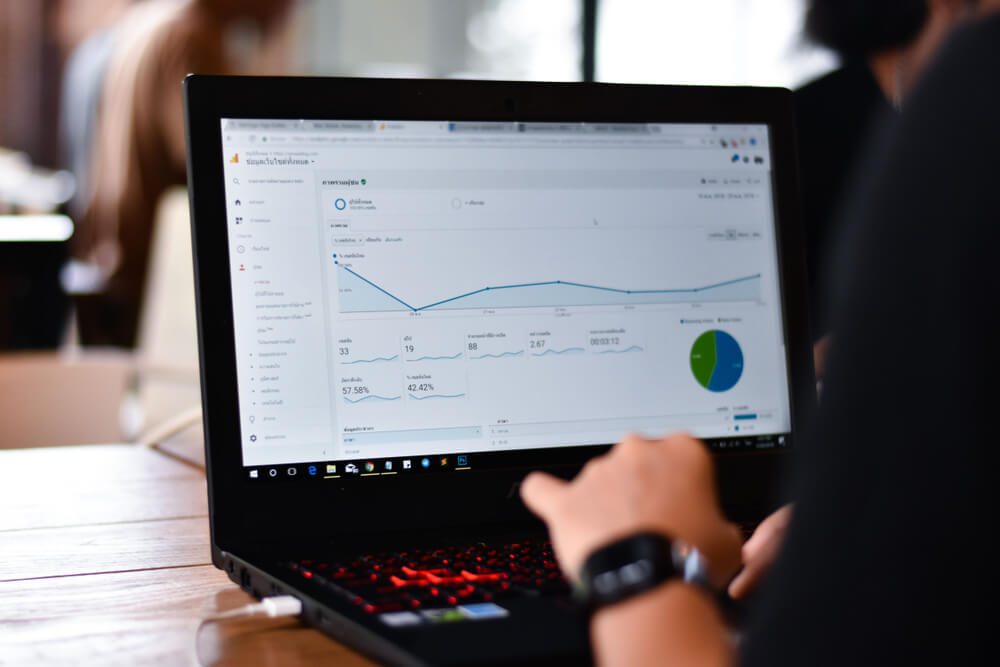Ask any seasoned SEO guru, and they will tell you that the search engine uses approximately 200 different Google ranking factors to rank your website’s content when matching it with relevant online searches.
Why Google ranking factors? Because it’s the number one search engine on the globe, dominating all other search engines with approximately 8.5 billion daily searches. That said, it’s only natural that you consider these essential factors, as bumping up your online visibility can help you do more business and, ultimately, grow your company – and the team here at Rosy Strategies has created a list of the most crucial Google ranking factors for 2023 to help you get a better idea of how to rule the SERPs.
Defining a Google Ranking Factor
The simplest way to describe these essential ranking factors is to define them as small information pieces that Google examines to decide how well webpages stack up against specific search queries.
For example, if you type “best restaurant type” into Google, the engine uses said ranking factors to display every result likely to help you get your answers.
Google ranking factors may include many things, such as word count on a specific page, to the time required for loading a website or page. Google’s ultimate goal is to give their users the most optimal content to get the answer they seek and fast, coupled with positive and straightforward online experiences.
The Most Important Factors to Rank High

When it comes to ranking higher, some website and business owners may go a bit overboard and try to optimize for all Google ranking factors. While this may sound tempting, it’s impossible to “be perfect for Google’s standards,” so to speak. This is why it’s crucial to prioritize those factors that give the most benefit.
Here are the most important factors to consider when improving your position in the SERPs.
Aim for High-Quality Content
Content is king, and when it comes to ranking high, it’s still one of the most critical factors. Fresh, unique, and helpful content will always be highly appreciated by Google, resulting in a better ranking.
Google loves quality and value. What this means is no matter how well you optimize other aspects of your pages, if your content is low-quality, then you probably won’t be able to get higher on the ranking ladder.
That said, create content on your pages that resonate with the needs of your audience, that’s genuine, and not just something you copied from other sources. Duplicate content can actually ruin your SEO efforts, leading to content indexing your pages as duplicates.
So, update your website regularly with unique and valuable content; Google also loves regular updates. So, if you are in an industry where advancements happen rapidly (like in the tech industry), you will want to update your content with the latest industry advancements and research data.
The length of your content is also an important ranking factor. Iomain this case, understanding what you need to do with it is pretty simple – opting for longer pieces is generally better. While there are several studies, data suggests that the best-ranking posts in the first ten positions on Google’s SERPs average out at 1,890 words.
Lastly, it’s also crucial that blog posts are well organized, with an easy-to-scan structure featuring bullet points, lists, headings, and subheadings. An organized structure helps your readers and crawlers make better sense of your content.
Content Relevancy and Search Intent
Another critical factor is how well your content matches the search intent of your users or what the user is typing when looking for something online.
For instance, if you type in “making a banana split,” you will probably get recipes on the top hits. In other cases, Google will display listicles, videos, or infographics based on search intent. In other cases, users are looking for products to buy, and Google will aim to show them the best prices and the easiest way to make a purchase.
Matching content with search intent can be confusing, but it isn’t impossible. Try to better understand what your audiences are looking for online and cater to their needs.
Loading Speed and Mobile Friendliness
Site loading speed has been a part of Google’s Core Web vitals since 2021, including critical user experience metrics, measuring overall responsiveness, speed, and a set of different elements like images and fonts.
Fortunately, it’s about something other than having the fastest-loading site. But more about meeting minimum requirements for loading times.
Another crucial Google ranking factor is ensuring your website performs well on all screens and devices.
Google made mobile search a priority in 2019, and to this day, it remains a crucial ranking factor in SEO. Simply put, if your website isn’t mobile-friendly, you probably won’t be able to reach your full potential SEO-wise.
Quality Backlinks
Another important ranking factor in SEO would be backlinks or incoming links from other sites that can significantly influence the ranking algorithm.
These inbound links act as a vote of confidence for your brand and site, especially if they come from valuable, high-authority websites. They signal to Google that you have trustworthy content because other high-profile sites are vouching for it with their links.
Domain Authority
Domain Authority (DA) measures your website’s expertise on a specific topic. One way to boost DA is by using quality backlinks, which won’t guarantee ultimate success.
To maximize your DA, you must also use another essential ranking factor: creating high-quality content focusing on your industry and its primary topics. To get the most out of it, consider launching a blog page where you regularly share new articles on various relevant industry topics.
Optimizing Keywords
Keywords have been crucial long-time ranking factors in SEO; they should match the terms users use to search for the information they seek. It’s vital that your pages contain the keywords your users are using. So, to make sure that your keywords are up-to-date, consider the following:
- Include relevant high-ranking keywords in your title tags
- Create engaging meta descriptions
- Don’t forget about Image Alt Text
- Use anchor texts
- Use latent semantic keywords
- Don’t stuff keywords
- Add keywords to your URLs
- Use keywords in your subheadings (H2, H3)
Site Structure and Security

To rank high, you should also have a well-structured website. Simple site architecture without numerous subdirectories can make crawling and indexing less of a challenge, granting better rankings in return.
Experts agree that creating an intuitive sitemap should be the first step to improving your site’s structure.
Next to architecture, you should also focus on site security, as it’s another critical Google ranking factor. For starters, using HTTPS protocol data encryption is necessary if you want Google to take your site seriously.
Improving On-Page Experience
Lastly, Google also prioritizes on-page experiences, or the experiences users have on your website.
Typically, the search engine uses running signals such as:
- CTR or click-through rate signals the percentage of users who click on your site in the SERPs. You can improve this with more optimized meta descriptions and improved titles.
- Dwell time measures how long visitors typically stay on your site after clicking them in the SERPs. The longer the stay, the better your site performs in the rankings.
- Bounce rate – the percentage of users visiting your site just to abandon it without interaction. Needless to say, the lower the bounce rate, the better your site’s performance.
Rank High With Expert Help
Trying to make sense of all this at once is pretty overwhelming and confusing for most. As a matter of fact, optimizing for search engines is an ongoing process that requires skill, knowledge, and experience.
Contact us today if you are looking for SEO services in Miami and Fort Lauderdale, FL. We will take over your optimization tasks while you can focus on what you do best – running your business.









